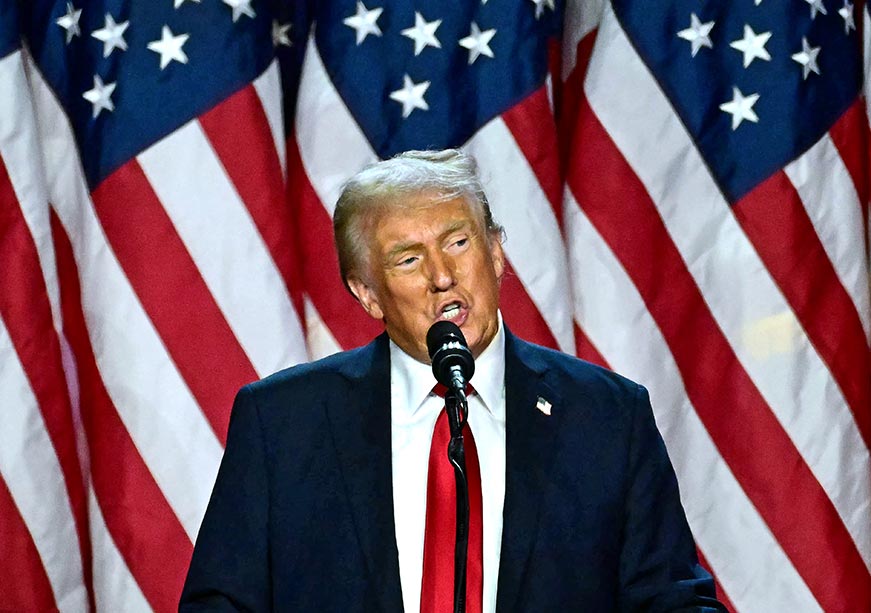-
CENTRES
Progammes & Centres
Location
The future appears uncertain, with major powers focused on their own challenges. However, Trump's new leadership offers an opportunity to steer clear of more detrimental outcomes.

Image Source: Getty
This article is a part of the essay series “Budapest Edit”
The major challenges facing humanity are those that transcend borders, and none of them can be dealt with when all the major powers of the globe are preoccupied with their own security. Leadership matters. Over the past four years, the United States (US), under the presidency of Joseph Biden, has been stumbling toward a world war with its European allies duteously in tow. Unable to prioritise its strategic interests, too impatient to follow a strategy of containment, and supremely confident in both its right and might, Washington found itself confronted by the largest war in Europe in more than seven decades, embroiled in an undeclared war with Iran and its proxies in the Middle East on land and sea, and contemplating the grim and real possibility of war in Asia with China. It learnt in Ukraine and Yemen that its economic and military weapons alike were less decisive than it had predicted. Speaking loudly and carrying a small stick, it spurred China, Russia, and Iran—the three most improbable partners—to new and unforeseen levels of cooperation. Its economic warfare against Russia has had, at best, an ambiguous impact on its target while undermining the German economy and other European economies, providing a warning and stimulus for China to gird itself for a future confrontation.
The unprecedented compliance of Europe’s political elites with Washington’s directions represents a victory for American statecraft, but it is likely to prove a pyrrhic one that serves neither American nor European long-term interests. Europe’s deference to Washington is largely rhetorical, as the yawning gap between European and American commitments to the North Atlantic Treaty Organisation (NATO) makes clear. An increase in European commitments and capabilities will come only with increased European assertiveness. The unravelling of German and European industry, however, all but ensures that European voters will be much less inclined than they were one decade ago, let alone seven, to trust America’s strategic leadership or to value American primacy.
Leadership counts, however, and the election of Donald Trump provides an opportunity for American and European leaders to reassess their security commitments and priorities more honestly, and build their relationship on a more solid foundation. With Iranian power sharply diminished following defeats in Lebanon and Syria, and a bloodied but unbroken Russia still open to compromise over Ukraine, Trump has an additional opportunity to pull America and its allies back from sliding toward a world war on their opponents’ terms.
Michael A. Reynolds is an Associate Professor of Near Eastern Studies and Co-Director of the Program in History and the Practice of Diplomacy at Princeton University
The views expressed above belong to the author(s). ORF research and analyses now available on Telegram! Click here to access our curated content — blogs, longforms and interviews.

Michael A. Reynolds is an c of Near Eastern Studies at Princeton University, specializing in Ottoman and modern Middle Eastern history, Russian and Eurasian history, ...
Read More +